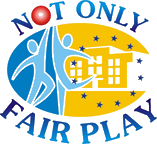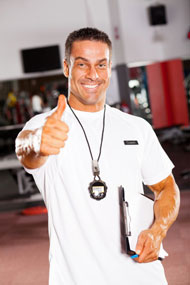
- Home
- Best
Practices - Toolkits
How to ... - Sport
Events - Guidelines
- Information
& Contacts - Project Management
A collection of student stories and initiatives about sport.
This section offers access to a collection of toolkits to promote sport at school.
-
 Physical Education Teachers
They are the main point of reference for students at school
Physical Education Teachers
They are the main point of reference for students at school
-
 Teachers
Teachers of all subjects can contribute to promote sport at school
Teachers
Teachers of all subjects can contribute to promote sport at school
-
 School Directors
Their support is a key element to promote sport at school
School Directors
Their support is a key element to promote sport at school
-
 Resources
A database of resources for teachers, PE teachers and school directors for the promotion of sport at school.
Resources
A database of resources for teachers, PE teachers and school directors for the promotion of sport at school.
Sporting events are organised in each partner country
Guidelines for policy makers willing to raise awareness on the importance of promoting sport in schools
Events
The Not Only Fair Play project has been promoted through conferences and articles.
Partnership
-
 Contractual Partners
From this section it is possible to access a description of each contractual partner of the Not Only Fair Play project.
Contractual Partners
From this section it is possible to access a description of each contractual partner of the Not Only Fair Play project.
-
 Schools
From this section it is possible to access information about the schools involved in the Not Only Fair Play Project in the 9 European countries involved.
Schools
From this section it is possible to access information about the schools involved in the Not Only Fair Play Project in the 9 European countries involved.
-
 Associated Partners
A number of associated partners officially joined the project in order to ensure the project sustainability by continuing to use the project deliverables over the next years.
Associated Partners
A number of associated partners officially joined the project in order to ensure the project sustainability by continuing to use the project deliverables over the next years.
This section of the Not Only Fair Play portal provides administrative information for the project contractual partners and for the European Commission, and is password protected.
Physical Education Teachers
Homepage > Toolkits > Physical Education Teachers

They are the main point of reference for students at school
Back to the Physical Education Teachers Toolkits
How to Promote Less Popular Sports
Physical Education Teacher
- Recall: Games of the Past – Sports for Today Project EAC/S03/2013/057Beneficiary: The Association For International Sport for All (TAFISA), based in Germany Partners from 9 Member States represented in the network: DE, FI, FR, HU, IE, IT, LU, PL, PT. 40 traditional sports and games that are suitable to be reintroduced to children and youth have been collected from all over Europe and feed an online TSG database that is open to TAFISA members and the public. The research will continue and next steps include the collection of TSG from other continents.
- European Medieval Sports and Street Games Network (Ga.M.E.S.Net)" Project EAC/S03/2013/046Development of European cultural diversity trough the promotion and protection of the traditional sports and games from 8 countries represented in the network: BG, CZ, DE, ES, FR, IT, MT, PT.
- The Ga.M.E.S.Net projectThe project originates from the desire to exchange information and good practice and to compare the models /standards of good practice regarding the awareness and promotion of the traditional sports and games among European subjects and entities at various levels. It focuses in particular on the historical and cultural common origins of the traditional sports and games in Europe, representing a fundamental part of the intangible territorial heritage and an important symbol of the cultural diversity of our societies.
- Daily physical activityIt offers guidelines on how to organize sports activities inside and outside school (examples of such activities), how to link to sports activities to seasonal Topics and local/ national Events.
- Daily Physical Activity in Schools – Grades 7 to 8The guide gives examples of sports activities and provides useful general tips on planning organizing sports activities as well as making the best use of physical activity facilities.
- The children’s sport participation and physical activity studyIt was a cross-sectional study that used self-report surveys, objective measures of physical activity and qualitative interviews to assess participation in physical activity, physical education, extra-curricular and extra-school sport among 10-18 year olds.
- Evidence on physical education and sport in schoolsThis evidence note reports domestic and international evidence on physical PE and sport in primary and secondary schools in UK (sports children participate in in primary schools and secondary schools.)
- Physical Education and Sport at School in EuropeChapter 2 aims to examine the curriculum, including its national aims, learning outcomes, activities specified in the central curriculum and steering documents, and exemptions from physical education.
- TeAch-nology.comTeAchnology provides free and easy to use resources for teachers dedicated to improving the education of today's generation of students. It features 46,000+ lesson plans, 10,200 free printable worksheets, rubrics, teaching tips, worksheet makers, web quests, math worksheets, and thousands of other great teacher resources.


